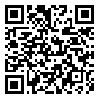Volume 10, Issue 4 (2-2024)
J Jiroft Univ Med Sci 2024, 10(4): 1430-1438 |
Back to browse issues page
Download citation:
BibTeX | RIS | EndNote | Medlars | ProCite | Reference Manager | RefWorks
Send citation to:



BibTeX | RIS | EndNote | Medlars | ProCite | Reference Manager | RefWorks
Send citation to:
Jamali M, Seyed Bagheri S H, Abazari L, Abazari A, pordavar M, Sadeghi T. The Effect of Interactive Content and Gamification on the Learning Rate and Motivation of Students in the Pediatric Nursing Virtual Internship Course. J Jiroft Univ Med Sci 2024; 10 (4) :1430-1438
URL: http://journal.jmu.ac.ir/article-1-728-en.html
URL: http://journal.jmu.ac.ir/article-1-728-en.html
Mahboobeh Jamali1 

 , Seyed Hamid Seyed Bagheri2
, Seyed Hamid Seyed Bagheri2 

 , Lida Abazari3
, Lida Abazari3 

 , Aida Abazari3
, Aida Abazari3 

 , Mohammad Pordavar4
, Mohammad Pordavar4 

 , Tabandeh Sadeghi5
, Tabandeh Sadeghi5 




 , Seyed Hamid Seyed Bagheri2
, Seyed Hamid Seyed Bagheri2 

 , Lida Abazari3
, Lida Abazari3 

 , Aida Abazari3
, Aida Abazari3 

 , Mohammad Pordavar4
, Mohammad Pordavar4 

 , Tabandeh Sadeghi5
, Tabandeh Sadeghi5 


1- MSc of Psychiatric Nursing, Student Research Committee, Rafsanjan University of Medical Sciences, Rafsanjan, Iran
2- Assistant Professor of Nursing, Department of Pediatric Nursing, School of Nursing and Midwifery; Non-Communicable Diseases Research Center, Rafsanjan University of Medical Sciences, Rafsanjan, Iran
3- MSc Medical-surgical Nursing student, Razi Faculty of Nursing & Midwifery, Kerman University of Medical Sciences, Kerman, Iran
4- Nursing BSc, Rafsanjan University of Medical Sciences, Rafsanjan, Iran
5- Associate Professor of Nursing, Department of Pediatric Nursing, School of Nursing and Midwifery; Non-Communicable Diseases Research Center, Rafsanjan University of Medical Sciences, Rafsanjan, Iran ,t.b_sadeghi@yahoo.com
2- Assistant Professor of Nursing, Department of Pediatric Nursing, School of Nursing and Midwifery; Non-Communicable Diseases Research Center, Rafsanjan University of Medical Sciences, Rafsanjan, Iran
3- MSc Medical-surgical Nursing student, Razi Faculty of Nursing & Midwifery, Kerman University of Medical Sciences, Kerman, Iran
4- Nursing BSc, Rafsanjan University of Medical Sciences, Rafsanjan, Iran
5- Associate Professor of Nursing, Department of Pediatric Nursing, School of Nursing and Midwifery; Non-Communicable Diseases Research Center, Rafsanjan University of Medical Sciences, Rafsanjan, Iran ,
Abstract: (3743 Views)
| Introduction: The learning styles of students have changed in today's world and they need new teaching methods. In a situation like the spread of the Coronavirus, the use of virtual training such as gamification has flourished. Therefore, this study was conducted with the aim of investigating the effect of interactive content and gamification on the level of learning and students' motivation in the integrated course of pediatric nursing virtual internship. Materials and Methods: This semi-experimental study was conducted on 49 sixth-semester nursing students of Rafsanjan University of Medical Sciences. The level of students' learning was assessed using a researcher-made questionnaire before and 10 days after the intervention. The motivation level was measured after the intervention by the standard educational materials motivational questionnaire (IMMS). This practical unit encompassed a 10-day internship in pediatric nursing. Each group received practical training and virtual assignments for 5 days, which simultaneously covered other internship days, in the pediatric department . Data were analyzed using SPSS version 18 software. Results: Based on the results, there was a statistically significant difference between the students' average learning scores before and after the implementation of gamification. The average post-test scores were higher than the pre-test scores, with a significant difference (p < 0.05). The average scores and standard deviation of the sum of the standard motivational questionnaire components were108±13 after the intervention; which indicates a moderate level of motivation created by this intervention. Conclusion: The results of the present study indicated the positive effect of gamification on students' motivation and learning. Therefore, it is recommended to use this method to facilitate students' learning. |
Type of Study: Applicable |
Subject:
Medical Sciences /Nursing
Received: 2023/08/20 | Accepted: 2025/02/4 | Published: 2024/03/10
Received: 2023/08/20 | Accepted: 2025/02/4 | Published: 2024/03/10
Send email to the article author
| Rights and permissions | |
 |
This work is licensed under a Creative Commons Attribution-NonCommercial 4.0 International License. |


